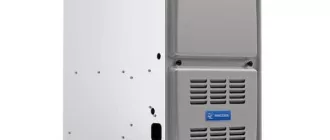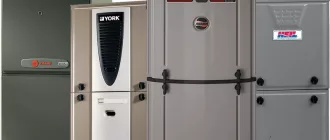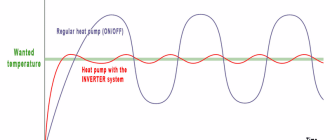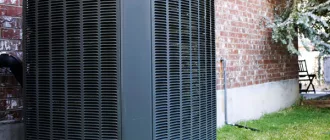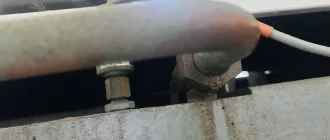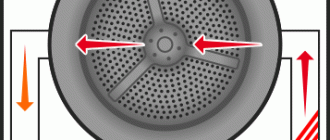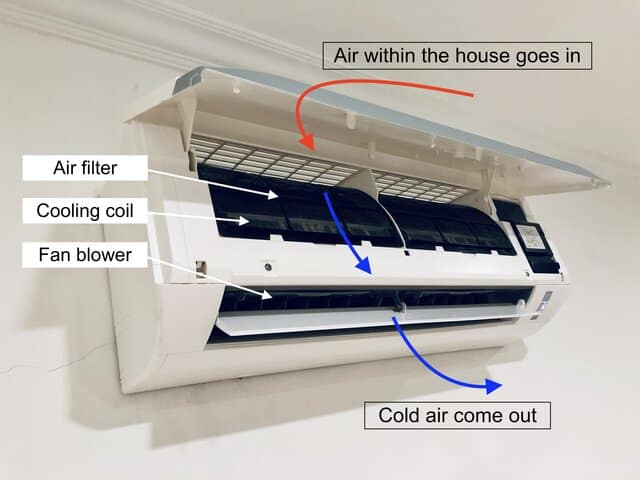
How Do Extremely Hot Days Affect My Home’s Air Conditioner?
Extremely hot days can have a significant impact on your home’s air conditioner. When temperatures reach high levels, your air conditioner has to work harder to keep your home cool and comfortable. The strain on the system can lead to increased energy consumption, reduced cooling capacity, and even potential breakdowns.
During hot days, the outside temperature can greatly affect the performance of your air conditioner. The hotter it is outside, the harder your AC unit has to work to cool down your home. This increased workload can cause wear and tear on the system, leading to a shorter lifespan and more frequent repairs.
Another way hot days can affect your air conditioner is by causing it to run continuously. When the temperature is extremely high, your AC may struggle to reach the desired temperature in your home. As a result, it will run for longer periods, leading to higher electricity bills and potential overheating of the system.
In extreme cases, the intense heat can overload your air conditioner and cause it to break down completely. This can be especially problematic if it happens during a heatwave when you need your AC the most. Regular maintenance and servicing can help prevent such breakdowns, but it’s important to be aware of the potential risks and take precautions.
The Impact of Extremely Hot Days on Air Conditioner Performance
Extremely hot days can significantly affect the performance of your home’s air conditioner. When the temperature rises to extreme levels, your air conditioner may struggle to keep up with the demand for cool air, resulting in decreased efficiency and effectiveness.
One of the main reasons why hot days affect air conditioner performance is the increased workload on the unit. When the temperature outside is extremely hot, your air conditioner needs to work harder to cool down the air and maintain a comfortable temperature inside your home. This increased workload can lead to more wear and tear on the system, which may result in a higher risk of breakdowns or malfunctions.
In addition to the increased workload, extremely hot days can also affect the efficiency of your air conditioner. When temperatures are high, the heat exchange process in your air conditioner may be less effective. This can result in longer cooling cycles and higher energy consumption, leading to increased energy bills.
Furthermore, extremely hot days can also impact the overall comfort of your home. If your air conditioner is not able to cool your home adequately during hot days, you may experience uneven cooling, hot spots, or even complete system failure. This can make your living conditions unbearable and may require costly repairs or replacements.
To mitigate the impact of extremely hot days on your air conditioner, it is important to properly maintain and care for your unit. Regular maintenance, such as cleaning or replacing air filters, checking refrigerant levels, and inspecting the system for any faults or issues, can help ensure optimal performance even during hot days.
In conclusion, extremely hot days can have a significant impact on your home’s air conditioner. The increased workload, decreased efficiency, and potential for system failure make it crucial to take proactive measures to maintain your air conditioner’s performance. By keeping up with regular maintenance and addressing any issues promptly, you can ensure that your air conditioner is able to withstand the heat and keep your home cool and comfortable even on the hottest of days.
Understanding Air Conditioner Efficiency during Heatwaves
When the weather gets extremely hot, it’s important to understand how it can affect the efficiency of your home’s air conditioner. Hot days can put a strain on your air conditioning system, making it work harder to keep your home cool.
How does the hot weather affect my air conditioner? Well, when it’s hot outside, the temperature inside your home rises as well. This means that your air conditioner has to work harder and longer to maintain a comfortable temperature.
Running your air conditioner for extended periods of time during hot days can lead to increased energy usage and higher utility bills. Additionally, the constant strain on the system can cause wear and tear, potentially leading to breakdowns or the need for repairs.
So, what can you do to help your air conditioner during hot days? One important step is to make sure that your home is properly insulated. This means that heat from the outside is less likely to enter your home, allowing your air conditioner to operate more efficiently. You can also consider using window coverings or shades to block out the sunlight, reducing the amount of heat that enters your home.
Another way to improve the efficiency of your air conditioner is to regularly clean or replace the air filters. Clogged or dirty filters can restrict airflow, making it harder for the system to cool your home. By keeping the filters clean, you can ensure that your air conditioner is able to operate at its optimal efficiency.
Finally, it’s important to have regular maintenance performed on your air conditioner. A professional technician can inspect your system, clean it, and make any necessary repairs or adjustments. This can help ensure that your air conditioner is running efficiently, even during the hottest days of the year.
In summary, hot days can have a significant impact on the efficiency of your home’s air conditioner. By taking steps to properly insulate your home, clean or replace air filters, and schedule regular maintenance, you can help your air conditioner operate efficiently even during heatwaves.
The Importance of Regular Air Conditioner Maintenance
Regular air conditioner maintenance is crucial to ensure the efficiency and longevity of your home’s cooling system, especially during extremely hot days. Without proper upkeep, the constant exposure to hot temperatures can significantly affect the performance of your air conditioner.
One of the main ways hot days can impact your air conditioner is by putting extra strain on its components. As the temperature rises, the air conditioner has to work harder to cool your home, leading to increased wear and tear on its parts. This can result in more frequent breakdowns and the need for costly repairs.
Additionally, hot days can also affect the refrigerant levels of your air conditioner. When temperatures soar, the refrigerant can evaporate at a faster rate, causing a decrease in the cooling capacity of your system. Low refrigerant levels not only reduce your home’s comfort but can also lead to compressor damage if left unaddressed.
Regular air conditioner maintenance helps mitigate the impact of hot days on your cooling system. By scheduling routine tune-ups and inspections, HVAC professionals can ensure that your air conditioner is running efficiently and identify any potential issues before they become major problems.
During maintenance visits, technicians will perform tasks such as cleaning the coils, changing filters, and checking for leaks or duct obstructions. These maintenance activities not only improve the overall performance of your air conditioner but also contribute to better indoor air quality.
In conclusion, hot days can adversely affect your home’s air conditioner, making regular maintenance essential. By investing in routine maintenance, you can prolong the lifespan of your cooling system, prevent breakdowns, and ensure optimal performance even during extremely hot days.
Signs of Overworked Air Conditioner during Hot Days
Extremely hot days can greatly affect your home’s air conditioner. When temperatures rise, your air conditioner works harder to maintain a comfortable indoor temperature, which can lead to overworking of the system. Here are some signs that your air conditioner may be overworked during hot days:
| Air conditioner constantly running: | If your air conditioner is running non-stop even when it’s set at a desired temperature, it could be a sign that it’s struggling to cool your home. This can indicate that the unit is overworked and not able to keep up with the demand. |
| Limited airflow: | If you notice decreased airflow from your vents during hot days, it could be a sign that your air conditioner is overworked. This could be due to a clogged air filter or other issues, which can cause the system to strain and consume more energy. |
| Uneven cooling: | If certain rooms in your home are not cooling as effectively as others during hot days, it may indicate an overworked air conditioner. The unit may struggle to distribute cool air evenly throughout your home, resulting in uneven cooling and discomfort. |
| Higher energy bills: | An overworked air conditioner will consume more energy to maintain the desired indoor temperature. If you notice a significant increase in your energy bills during hot days, it could be a sign that your air conditioner is working harder than usual. |
| Strange noises or smells: | If your air conditioner is making unusual noises or emitting strange smells during hot days, it could indicate an overworked system. These issues could be caused by worn-out components, overheating, or other problems associated with an overworked air conditioner. |
If you notice any of these signs during hot days, it’s important to have your air conditioner inspected and serviced by a professional. Regular maintenance can help prevent overworking of your air conditioner and ensure its optimal performance.
The Effects of Extreme Heat on Air Conditioner Lifespan
Extremely hot days can have a significant impact on your home’s air conditioner. The high temperatures can put a strain on the system and affect its overall performance and lifespan.
When the weather is hot, the air conditioner has to work harder to cool your home. This increased workload can lead to wear and tear on the components of the system, potentially causing them to fail prematurely. The compressor, in particular, is at risk as it is responsible for cooling the air and maintaining the desired temperature.
In addition to the increased workload, extreme heat can also affect the efficiency of the air conditioner. The hotter the outside temperature, the more difficult it is for the system to transfer heat from inside your home to the outside. As a result, the air conditioner may struggle to cool your home efficiently and you may notice longer cooling cycles or higher energy consumption.
To mitigate the effects of extreme heat on your air conditioner, it is important to provide proper maintenance and care. Regularly cleaning or replacing air filters can improve airflow and prevent the system from overworking. Ensuring that the outdoor unit is free from debris, such as leaves or grass, can also help maintain optimal performance.
During extremely hot days, you may need to give your air conditioner a break to prevent excessive strain. Turning up the thermostat a few degrees or using ceiling fans can help reduce the workload on the system. Additionally, scheduling regular tune-ups by a professional technician can identify and address any potential issues before they become major problems.
In conclusion, extremely hot days can affect the lifespan of your home’s air conditioner. The increased workload and decreased efficiency can put stress on the system and potentially lead to premature failure. By providing proper maintenance and taking steps to reduce strain on the system, you can help prolong its lifespan and ensure optimal performance.
| Days | Home’s | Conditioner | Extremely | Hot | My | Affect | How |
Protecting Your Air Conditioner from Extreme Heat Damage
Hot, sunny days can have a significant impact on your home’s air conditioner. The extreme heat can cause a variety of problems that affect the performance and efficiency of your cooling system.
Here are some ways to protect your air conditioner from extreme heat damage:
- Ensure proper insulation: Make sure your home is properly insulated to prevent heat transfer from the outside to the inside. This will help your air conditioner work more efficiently and reduce the strain on the system.
- Provide shade: Installing shades or awnings outside your windows can help block the sun’s rays and reduce the amount of heat entering your home. This will lessen the load on your air conditioner and allow it to cool your home more effectively.
- Clean and maintain your air conditioner: Regularly clean and maintain your air conditioner to ensure optimal performance. Remove any debris or dirt from the unit, and clean or replace the filters as needed. This will help prevent any issues that may arise due to overheating.
- Use a programmable thermostat: A programmable thermostat allows you to set specific temperature levels for different times of the day. By reducing the temperature during the hottest parts of the day, you can give your air conditioner a break and potentially lower your energy bills.
- Limit heat-generating activities: On extremely hot days, try to limit activities that generate heat inside your home, such as using the oven or dryer. This will help reduce the overall demand on your air conditioner and prevent it from working harder than necessary.
By taking these steps, you can protect your air conditioner from extreme heat damage and ensure it continues to cool your home effectively, even on the hottest days.
The Role of Insulation in Maintaining a Comfortable Indoor Temperature
Hot summer days can have a significant impact on the comfort level of your home’s indoor temperature, especially when it comes to the functioning of your air conditioner. Understanding how extremely hot days can affect your air conditioning system is crucial for maintaining a comfortable indoor environment.
Insulation plays a vital role in regulating the temperature inside your home. It acts as a barrier against external heat, preventing it from seeping into your living spaces. Insulation helps to maintain a comfortable indoor temperature by reducing the transfer of heat between the inside and outside of your home.
During extremely hot days, when the temperature outside rises significantly, the insulation in your home becomes even more important. Without adequate insulation, your air conditioner will have to work harder to maintain a cool temperature indoors. This increased workload can put a strain on your air conditioning system and may even lead to inefficiency or breakdowns.
Proper insulation helps to ensure that the cool air produced by your air conditioner remains inside your home, while keeping the hot air outside. This not only makes your living spaces more comfortable but also helps to reduce energy consumption and lowers your utility bills.
In addition to insulating your walls and ceilings, it is also important to consider insulating other areas of your home that can contribute to heat gain, such as windows and doors. Installing weatherstripping or using window films can help to minimize heat transfer and improve the energy efficiency of your home.
In conclusion, the role of insulation in maintaining a comfortable indoor temperature cannot be overstated. It acts as a protective barrier against the hot temperatures of summer days, ensuring that your air conditioner can effectively cool your home. By investing in proper insulation and taking steps to prevent heat gain, you can create a more energy-efficient and comfortable living environment.
How Hot Weather Affects Air Conditioner Energy Consumption
Extremely hot days can have a significant impact on the energy consumption of your home’s air conditioner. When the weather is hot, your air conditioner has to work harder and longer to cool down your home. This increased workload leads to higher energy usage and, in turn, higher electricity bills.
Hot weather causes the temperature inside your home to rise, which makes it more difficult for your air conditioner to achieve and maintain the desired temperature. As a result, the air conditioner needs to run for longer periods of time to cool down your home and remove the excess heat. This constant running puts a strain on the system, causing it to consume more energy.
Additionally, extremely hot weather can also affect the efficiency of your air conditioning unit. High temperatures can cause the system to work less efficiently, reducing its cooling capacity. This means that your air conditioner may need to run for even longer to achieve the desired temperature, further increasing energy consumption.
To minimize the impact of hot weather on your air conditioner’s energy consumption, there are a few steps you can take. First, make sure that your home is properly insulated and sealed to minimize heat gain. This will help reduce the workload and energy usage of your air conditioner. You can also use blinds or curtains to block out sunlight and keep your home cooler.
Regular maintenance of your air conditioner is also essential to ensure optimal performance and energy efficiency. Clean or replace the air filters regularly, as dirty filters can restrict airflow and make the system work harder. It’s also important to have your air conditioner serviced by a professional regularly to identify and address any issues that may be affecting its efficiency.
| Consider using a programmable thermostat to set your air conditioner to higher temperatures when you’re not at home. This can help reduce energy consumption while still maintaining a comfortable temperature when you return. |
In conclusion, hot weather can significantly impact your home’s air conditioner energy consumption. Understanding how hot weather affects your air conditioner can help you take appropriate measures to minimize energy usage and keep your home cool and comfortable.
The Connection between High Temperatures and Air Conditioner Maintenance Costs
Extremely hot days can have a significant impact on your home’s air conditioner. When temperatures rise, the demand for cool air increases, placing added strain on the air conditioning system. This increased workload can lead to higher maintenance costs for homeowners.
Hot days can cause the air conditioner to work harder and run for longer periods of time. This constant operation can result in wear and tear on the system’s components, leading to the need for frequent repairs and maintenance. Additionally, the increased strain can cause the system to consume more energy, resulting in higher utility bills.
To prevent excessive maintenance costs, it is important to properly maintain your air conditioner, especially during extremely hot days. Regularly cleaning or replacing air filters, checking and cleaning the outdoor unit, and scheduling professional maintenance services can help ensure that your system is running efficiently and effectively.
Furthermore, it is recommended to keep your home well-insulated to minimize heat gain during hot days. Good insulation can reduce the workload on your air conditioner, leading to lower maintenance costs in the long run.
Overall, it is crucial to understand the connection between high temperatures and air conditioner maintenance costs. By taking proactive measures to maintain your system and limit heat gain, you can help prolong the lifespan of your air conditioner and reduce the need for costly repairs and maintenance.
The Benefits of Upgrading to a More Efficient Air Conditioner
In extremely hot days, your home’s air conditioner has to work harder to keep your house cool and comfortable. This increased workload can not only affect the performance of your air conditioner but also lead to higher energy bills.
By upgrading to a more efficient air conditioner, you can enjoy several benefits. Firstly, a more efficient air conditioner can better handle the hot days and keep your home cool without putting excessive strain on the system. This means that you can rely on your air conditioner to provide consistent and reliable cooling even when the temperatures are soaring.
In addition, a more efficient air conditioner can help you save money on your energy bills. These newer models are designed to consume less energy while still providing the desired level of cooling. By using less energy, they can help you reduce your overall energy consumption and lower your monthly bills. Over time, the cost savings can add up significantly.
Furthermore, upgrading to a more efficient air conditioner can also have positive environmental impacts. By reducing your energy consumption, you are minimizing your carbon footprint and contributing to a greener planet. With the growing concern about climate change, opting for a more eco-friendly air conditioner is a responsible choice that aligns with the goal of sustainability.
Overall, upgrading to a more efficient air conditioner offers multiple benefits. It can improve the performance and reliability of your cooling system, save you money on your energy bills, and help protect the environment. If you want to enjoy a cool and comfortable home while also reducing your energy consumption, investing in a more efficient air conditioner is a wise decision.
The Impact of Shade on Air Conditioner Performance
In extremely hot days, my home’s air conditioner plays a vital role in keeping the indoor temperature comfortable. However, the performance of the air conditioner can be affected by various factors, one of which is the presence of shade.
Shade can significantly impact the efficiency and effectiveness of an air conditioner. When the air conditioner unit is exposed to direct sunlight, it has to work harder to cool down the indoor air. The hot sun can cause the temperature of the unit itself to rise, which can reduce its cooling capacity.
Having shade around the air conditioner can help improve its performance. Shade can help lower the temperature of the unit, allowing it to operate more efficiently. This means that the air conditioner can cool down the indoor space more effectively and consume less energy.
There are several ways to provide shade for the air conditioner. One option is to install a shade structure or awning above the unit. This can help block the direct sunlight and prevent the unit from overheating. Another option is to plant trees or shrubs strategically around the unit to create natural shade. Not only will this provide shade for the air conditioner, but it can also enhance the overall aesthetics of the outdoor space.
It is important to consider the placement of the air conditioner when installing it. Choosing a location that already has natural shade or can easily accommodate shade structures can help optimize the performance of the air conditioner.
In conclusion, shade plays a significant role in the performance of my home’s air conditioner on extremely hot days. Providing shade for the unit can help improve its efficiency and effectiveness in cooling down the indoor space. Taking steps to ensure that the air conditioner is not exposed to direct sunlight can contribute to energy savings and a more comfortable indoor environment.
Why Size Matters: Properly Sizing Air Conditioner for Hot Climates
Extremely hot days can greatly affect the performance of your home’s air conditioner. When temperatures soar, your air conditioner has to work harder to cool your home, and if it is not properly sized for the climate, it may struggle to keep up with the demand.
Properly sizing your air conditioner is crucial in hot climates. If your AC unit is too small, it will have to run constantly to try to keep your home cool, which can lead to increased energy consumption and higher utility bills. On the other hand, if your air conditioner is too big for your home, it may cycle on and off frequently, which can cause unnecessary wear and tear on the system and reduce its overall lifespan.
When selecting the right size air conditioner for your hot climate, several factors should be taken into consideration. These include the square footage of your home, the level of insulation, the number of windows and doors, and the amount of shade your home receives. An HVAC professional can perform a load calculation to determine the appropriate size of air conditioner for your specific needs.
| Efficient cooling | Inefficient cooling | Frequent cycling |
| Lower energy consumption | Higher energy consumption | Unnecessary wear and tear |
| Optimal comfort | Inconsistent temperature | Shorter lifespan |
Remember that properly sizing your air conditioner is not just about selecting the most powerful unit available. It is about finding the perfect balance between cooling capacity and energy efficiency to ensure the best performance and comfort in your hot climate.
Consulting with an HVAC professional is essential when choosing and installing a new air conditioner. They can assess your home’s specific needs and recommend the right size unit that will effectively cool your home during extremely hot days.
The Role of Airflow in Air Conditioner Cooling Efficiency
When it comes to how extremely hot days affect your home’s air conditioner, one important factor to consider is the airflow. Adequate airflow is crucial for the cooling efficiency of your air conditioner.
During extremely hot days, the demand for air conditioning is at its peak. The outdoor temperature and humidity are both high, which puts a strain on your air conditioner. To keep your home cool, the air conditioner must work harder and run for longer periods of time.
Proper airflow is necessary for the air conditioner to cool your home efficiently. Without sufficient airflow, the air conditioner will struggle to reach the desired temperature and may not be able to keep up with the cooling demand.
There are several factors that can affect airflow in your air conditioner. One common issue is a dirty or clogged air filter. A dirty air filter restricts the flow of air, making it harder for the air conditioner to cool your home effectively. It is important to regularly check and clean or replace the air filter to ensure proper airflow.
Another factor that can affect airflow is blocked or closed vents. If the vents in your home are blocked by furniture or other objects, or if they are closed, it will restrict the flow of air and decrease the cooling efficiency of your air conditioner.
In addition to proper maintenance and keeping vents open, it is also important to have the right size air conditioner for your home. An undersized air conditioner will struggle to cool your home effectively, while an oversized air conditioner will cycle on and off frequently and may not dehumidify the air properly.
In conclusion, airflow plays a crucial role in the cooling efficiency of your air conditioner, especially during extremely hot days. Regular maintenance, including cleaning or replacing the air filter and keeping vents open, is important to ensure proper airflow and optimal cooling performance.
How Extremely Hot Days Can Affect Indoor Air Quality
Extremely hot days can have a significant impact on the indoor air quality of your home. When the outside temperature rises, your home’s air conditioner works harder to keep the indoor temperature cool and comfortable. This increased strain on the air conditioner can lead to a variety of issues that can affect the quality of the air you breathe indoors.
- Poor Ventilation: On extremely hot days, you may be tempted to keep your windows and doors closed to help keep the cool air inside. However, this lack of ventilation can lead to a buildup of pollutants and irritants in the air, such as dust, allergens, and chemicals from cleaning products.
- Humidity: Hot and humid weather can cause an increase in indoor humidity levels. Excess moisture in the air can create a breeding ground for mold and mildew, which can negatively impact indoor air quality and lead to respiratory issues.
- Pollutants from Outside: During hot days, pollutants such as smog and smoke from wildfires can be more prevalent in the air. These pollutants can make their way into your home and decrease the overall air quality.
- Inefficient Air Filters: When your air conditioner is working harder to cool your home, the air filters can become clogged with dust and debris more quickly. This can reduce their effectiveness in capturing pollutants and allergens, allowing them to circulate in the air you breathe.
To help maintain good indoor air quality on extremely hot days, it is important to properly maintain your air conditioner and address any issues that arise. This can include regularly cleaning or replacing air filters, ensuring proper ventilation by opening windows and doors when possible, and using indoor air purifiers to remove pollutants and allergens from the air.
By being proactive in maintaining your home’s air conditioner and taking steps to improve indoor air quality, you can ensure that your home remains a healthy and comfortable environment, even on extremely hot days.
Q&A:
How does extreme heat affect my air conditioner?
Extreme heat can put a lot of strain on your air conditioner. When the outside temperature is extremely hot, your AC unit needs to work harder to cool your home. This extra workload can cause the system to overheat and potentially fail if it’s not properly maintained.
What are the signs that my air conditioner is struggling in extreme heat?
If your air conditioner is struggling in extreme heat, you may notice that it takes longer to cool your home or that the airflow is weaker. You may also hear strange noises coming from the unit or notice leaks or frost on the evaporator coil. These are all signs that your AC system is under stress and may require professional attention.
Can extreme heat damage my air conditioner?
Yes, extreme heat can damage your air conditioner. When the temperature outside is excessively hot, the components of your AC unit can get overheated, leading to system failure. It’s important to have regular maintenance on your system to prevent any potential damage caused by extreme heat.
How can I protect my air conditioner during extremely hot days?
To protect your air conditioner during extremely hot days, you can take several steps. Make sure your AC unit is clean and free of debris, as this can hinder its performance. Keep the area around the outdoor unit clear and shaded if possible. Additionally, consider using shades or curtains to block out direct sunlight and reduce the workload on your AC system.
What should I do if my air conditioner stops working on an extremely hot day?
If your air conditioner stops working on an extremely hot day, first check if there is power going to the unit. Also, check the thermostat to ensure it is set correctly. If these basic troubleshooting steps don’t solve the issue, it’s best to call a professional HVAC technician to diagnose and fix the problem. Attempting to repair the unit yourself could cause further damage or even be dangerous.
Can extremely hot days damage my home’s air conditioner?
Yes, extremely hot days can potentially damage your air conditioner. When the temperature rises, your AC unit has to work harder to keep your home cool. This increased workload can put a strain on the system, leading to mechanical problems or even complete system failure.

